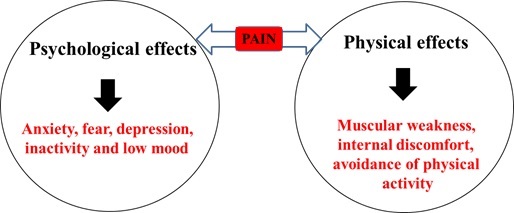Published on: 8th January, 2022
Pain is an unpleasant sensory and emotional experience due to real or possible tissue injury. It is a serious biomedical condition that reduces human activity. Several factors can cause pain. Normally, the human body maintains a healthy balance of alkalinity and acidity. However, increased tissue acidity due to some physiological practices related to excessive sportive exercise and consumption of high acid foods and drinks can cause pain by triggering acid-sensing ion channels (ASICs). Also, inadequate blood flow necessary for the metabolic activities can cause tissue acidity. Some signs and symptoms of pain in people include, but are not limited to, twisting or constant shifting in bed, groaning, moaning, whimpering, frowning, uneasy and tense appearance, agitation and restlessness. There is paucity of information on the involvement of ASICs in pain-like behaviors. To investigate this, zebrafish were pretreated via injection with amiloride, a drug that prevents excessive loss of potassium in the body and a potent ASIC inhibitor, at 0, 0.25, 0.5, 1.0, and 2.0 mg/mL before injection of 2.5% acetic acid to induce pain. The technique is novel and better than others because it is fast, no chemical anesthesia is required and allows for immediate assessment of the swimming activity of fish when returned to the water.

The novel findings herein showed that inhibition of ASICs with the tested doses of amiloride, considerably abated specific behavioural responses associated with pain in zebrafish model. Fortunately, ASICs in zebrafish is about 75% similar to human and rodent counterparts. Thus, our data evidenced ASICs as a therapeutic target as well as support the utility of zebrafish-based models in translational pain research. It is therefore recommended that moderate exercise and consumption of acid-rich diets that will not activate ASICs to induce pain are essential for an optimal healthy status.

Dr. Isaac A. Adedara is a Senior Lecturer in the Department of Biochemistry and the current Sub-Dean (Undergraduate), Faculty of Basic Medical Sciences, University of Ibadan. He obtained the Bachelor of Science (B.Sc.), Master of Science (M.Sc.) and Doctor of Philosophy (PhD) in Biochemistry from the University of Ibadan in 2001, 2004 and 2011, respectively. He was a recipient of the prestigious Indian National Science Academy-Jehangir R.D. Tata (INSA-JRD TATA) and the John D. and Catherine T. MacArthur Foundation Fellowships (USA) during his doctoral research programme. Dr. Adedara had his Postdoctoral training at the Auburn University, Auburn, USA and the Federal University of Santa Maria, Brazil. He uses a wide range of contemporary and molecular biology tools including, but not limited to, spectrophotometric enzyme assays, western blotting and enzyme-linked immunosorbent assay to elucidate the molecular mechanisms of action of toxic compounds which have added to the body of knowledge in biomedical research. Dr. Adedara’s area of expertise is toxicology and has published more than 100 research papers in reputable international peer-reviewed journals. He is an editorial board member of the Journal of Biochemical and Molecular Toxicology (USA). He is currently a recipient of the prestigious “Young Talent with Experience Abroad Scholarship” from the Federal Government of Brazil to participate in the project entitled “Pharmacological and nutritional strategies for health promotion” with Professor Denis B. Rosemberg as his preceptor at the Federal University of Santa Maria, Brazil.
Read the full article at https://pubmed.ncbi.nlm.nih.gov/34499933
Newscast Series from the College of Medicine, University of Ibadan (CoMUI),
Translational Research & Community Impact Committee (TRaCC) 0003

